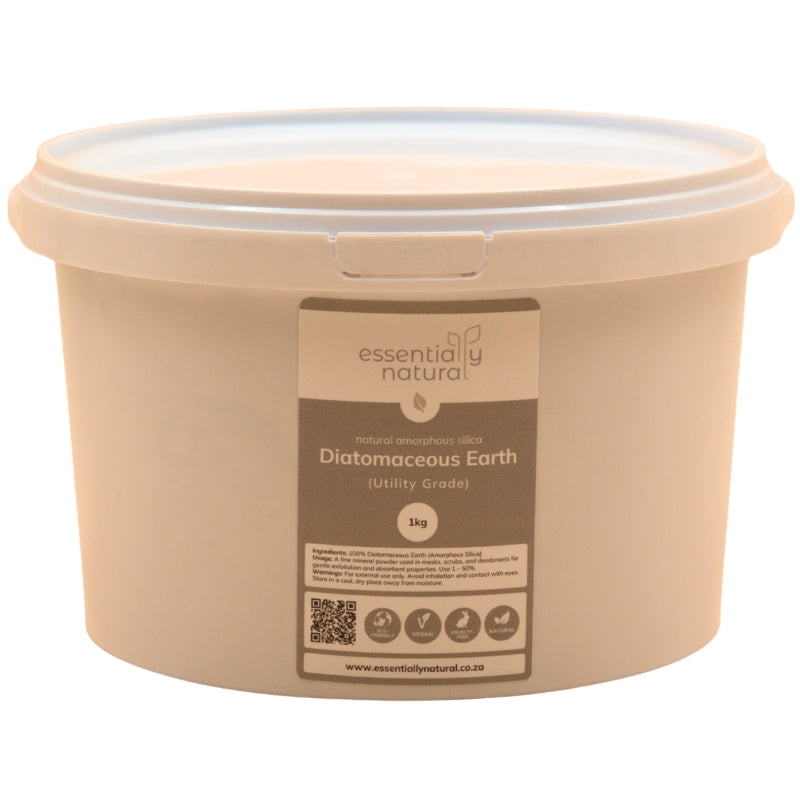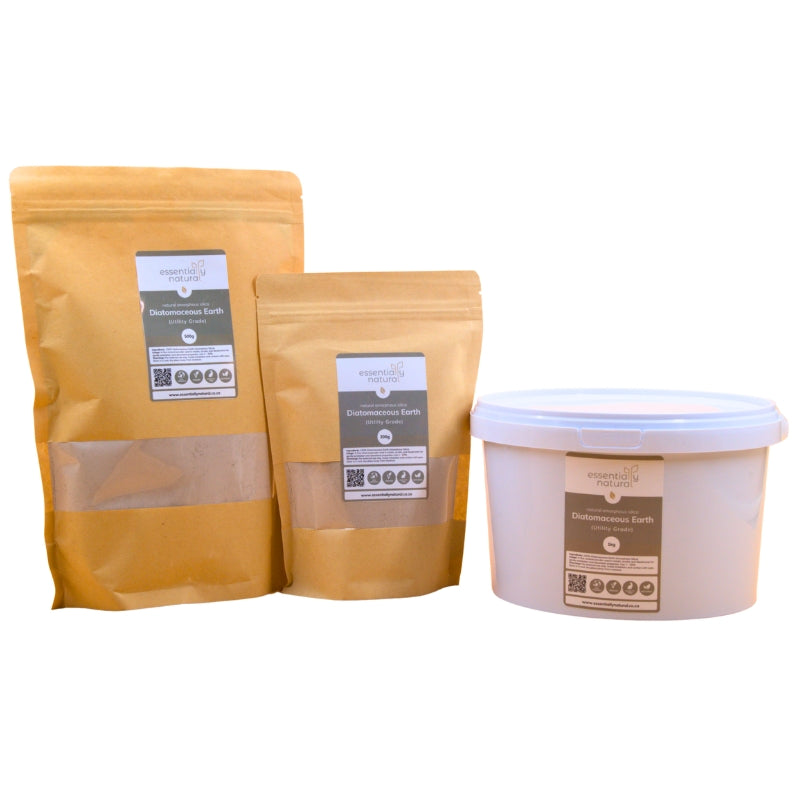
The Natural Pet P1: Pet Approved Natural Products
Juliette van der MeerWe often get asked what products are safe for pets and can they handle essential oils, carriers, herbs, etc.
In Part 1 of the Natural Pet series we will discuss the do’s and don’t with animals and natural products. The most important thing to keep in mind with pets and natural products is that pets all react differently, just like humans.
Essential oils are a particularly hot and confusing topic in pet care. There are lists of oils that are considered safe and others that are toxic, but these are guidelines and not definitive. Always do a patch test first and observe your animal’s behavior before dosing them with a homemade flea concoction.
Are Essential Oils toxic to pets?
A note on animal biology: I'm no animal biology expert, but some quick research will tell you a lot about your pet's biology.
-
Cats lack an enzyme in their liver which prevents them from breaking down phenols and terpenes (aromatics), which are present in certain essential oils such as the citrus oils, wintergreen and other strongly scented oils.
So it isn't that the essential oils themselves are toxic, it is that cats simply lack the metabolizing ability necessary to handle them. -
Dogs are able to process essential oils better, but tend to be more susceptible to allergies induced by the oils (essentially, the oils can 'tickle their noses').
If you notice your dog sneezing, eyes watering or any other kind of allergic reaction, discontinue use.
Large amounts of essential oils can be toxic even to humans. So animals, who are so much smaller than us, and have far superior senses of smell, will be more sensitive to fragrant oils. To put this into perspective, the average dog has 150 million olfactory (smell) receptors and some breeds have up to 300 million. Dogs also have a larger portion of their brain dedicated to smell: up to 40 times greater than ours. The average cat has 200 million olfactory receptors and it is thought they are able to distinguish between a larger range of scents than a dog. In comparison, humans have 5 or 6 million olfactory receptors. And this is just the tip of the iceberg when it comes to animals' sensory superiority.
So the tricks to using essential oils on pets are:
- Don’t let your animals ingest or lick essential oils.
- Always dilute essential oils in a carrier oil or in water, never apply undiluted.
- Don't apply near animals' nose, eyes, ears or genitals.
- Remember that your pets are individuals and may have unique sensitivities.
Even the experts don’t agree definitively on which essential oils are safe and which aren’t, and I haven’t been able to find any two research papers that agree on a list of safe oils. But we have compiled a list below based on research and experience, which you will hopefully find useful.
Most carrier oils are gentle enough and don’t have very powerful scents, so are safe to use on your pets. Try olive oil, calendula oil, coconut oil, neem oil or sweet almond oil. Most herbs are perfectly fine and even highly beneficial to your pets.
What products are safe for pets?
Here is a starting list of natural products that are safe for animals. As always, use sparingly and do a patch test first to suss out any irritation.
Which Essential oils are safe for pets?
In general, lavender, chamomile, geranium, lemongrass, citronella, clary sage, frankincense, helichrysum, tagetes and cedarwood are fine for pets, but exceptions do occur.
Which Carrier oils are safe for pets?
- Calendula oil - healing and soothing for irritations and cuts.
- Neem oil - great for mites, bites and any problem skin. A lifesaver for hot spots on dogs. It does have quite a powerful scent but animals grow accustomed to it quickly.
- Hemp oil - rich in omega oils, hemp is a nourishing skin oil or food supplement.
- Coconut oil - a great carrier for any essential oils.
- Any mild carrier oil should be fine for your pets.
- Flax, safflower or a fish oil are a good addition to a cat’s diet to help lubricate their systems to prevent hairballs. These oils are also extremely nutritious.
Other products:
- Diatomaceous earth (mix with a carrier oil so pets can’t inhale the fine powder) - helps get rid of fleas, ticks and and their eggs.
- Witch hazel - helps with fleas, or just to freshen fur. Dilute with water if necessary, add to a spray bottle and spray generously on coats, working it in with your hands. You can add a few drops of essential oils as witch hazel makes a good carrier.
- Catnip - needs no introduction, cats adore it!
- Valerian root - for anxiety or sedation purposes. It has a similar effect on cats as catnip. Dosage: 1 - 7.5g depending on the size of your animal.
- Nettle - a cooled tea solution is good for irritated skin. The solution can also be added to shampoos and rinses.
- Aloe vera - soothing and healing, a perfect addition to any shampoo, rinse or spray.
- Dried mullein herb - for coughs,wheezing and respiratory problems in dogs.
- Dried neem herb - great in shampoos and rinses for conditioning fur.
- Other dried herbs - many herbs are safe for animals in small/diluted amounts and can be used for similar symptoms as what humans would use them for. Consult your vet first if you are unsure. You can order any herb in powdered form.
As with anything new, introduce the natural product to your pet slowly and in small amounts, increasing dosage as you see results.
If you are giving your animals herbs, they will probably take to them easiest if in a tea form in their drinking water. Cats in particular do not digest roughage well so a solution is best. With dogs you can try to mix the herb (powdered is best) into their food, or put a solution in their water. Horses will probably just chomp the herb mixed in with their usual food as they built to grind roughage.
Which Essential oils are unsafe for pets?
Essential Oils Unsafe for Cats
With cats, due to high concentrations of phenols:
- Cassia, cinnamon, clove and spicy oils, lemon and citrus oils, eucalyptus, peppermint, tea tree, spruce, birch, spruce/fir-related oils (these can even be irritating to humans), basil, thyme and fennel.
This list is not absolute and cats may react differently to oils. For instance my cat loves peppermint. I made a face mask containing peppermint oil and she started licking it out the bowl. I did push her away but she is attracted to minty scents (including my DIY deo). She is perfectly fine after her little peppermint tasting.
Essential Oils Unsafe for Dogs
With dogs, due to potential irritants:
- Clove, garlic, juniper, rosemary, tea tree, thyme, wintergreen, oregano.
Exceptions: dogs, especially larger breeds, do appear to handle essential oils better than cats. Tea tree is often punted as an addition to flea and tick repellents, although it is listed as not so safe for dogs. I also know people who have used tea tree blended with lavender and citronella in a carrier oil for fleas, or to disinfect a wound, and their dogs are totally fine. Likewise rosemary is often added to pet shampoos (even conventional ones) although it is also on the ‘not safe’ list. Just use your discretion with dosages.
We will be doing a series on natural remedies and DIY products for animals, but for now we will leave you with these two recipes for kitty and doggy treats, because why not do some baking for your furbaby!





























